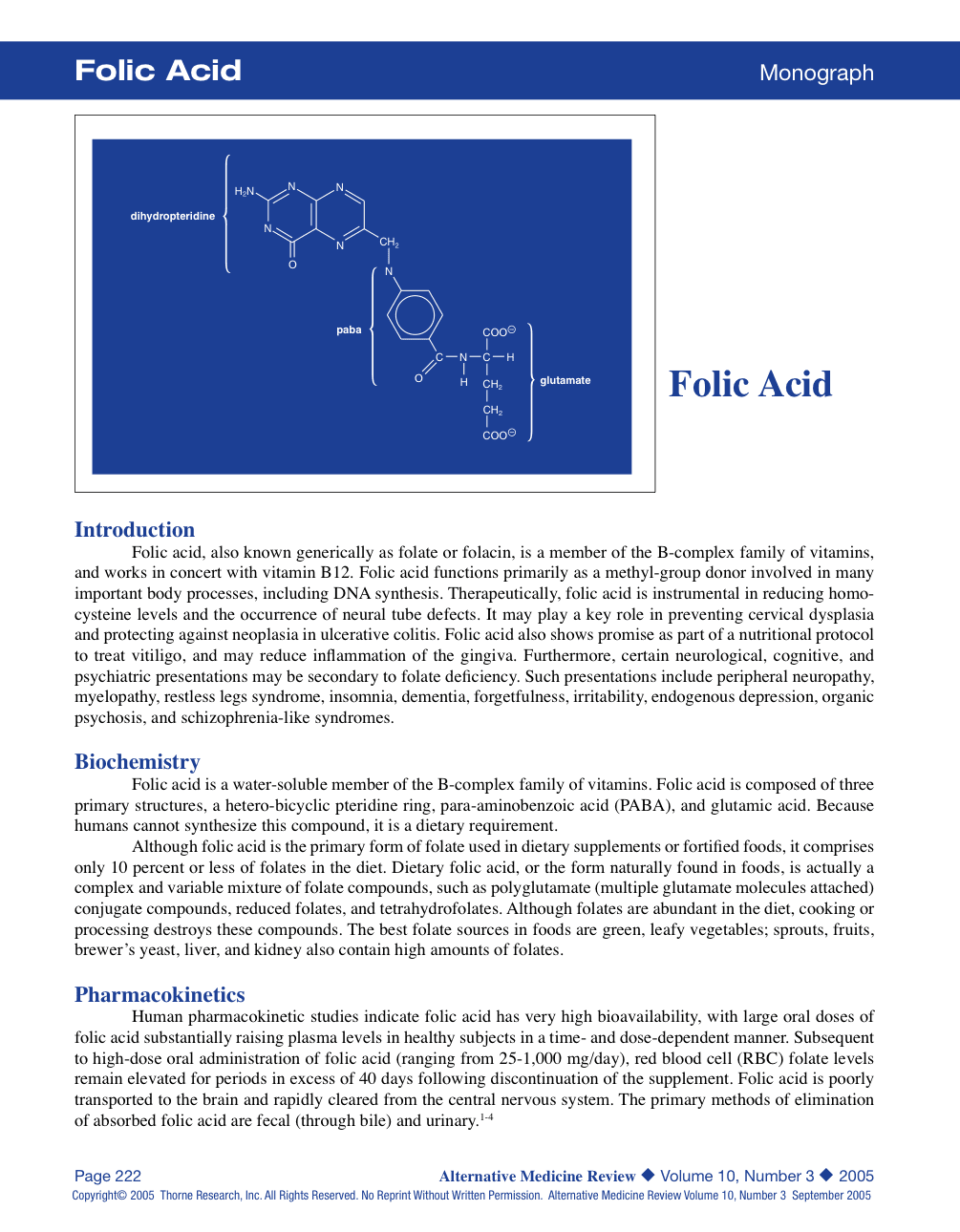Abstract
Folic acid, also known generically as folate or folacin, is a member of the B-complex family of vitamins, and works in concert with vitamin B12. Folic acid functions primarily as a methyl-group donor involved in many important body processes, including DNA synthesis. Therapeutically, folic acid is instrumental in reducing homocysteine levels and the occurrence of neural tube defects. It may play a key role in preventing cervical dysplasia and protecting against neoplasia in ulcerative colitis. Folic acid also shows promise as part of a nutritional protocol to treat vitiligo, and may reduce inflammation of the gingiva. Furthermore, certain neurological, cognitive, and psychiatric presentations may be secondary to folate deficiency. Such presentations include peripheral neuropathy, myelopathy, restless legs syndrome, insomnia, dementia, forgetfulness, irritability, endogenous depression, organic psychosis, and schizophrenia-like syndromes.

